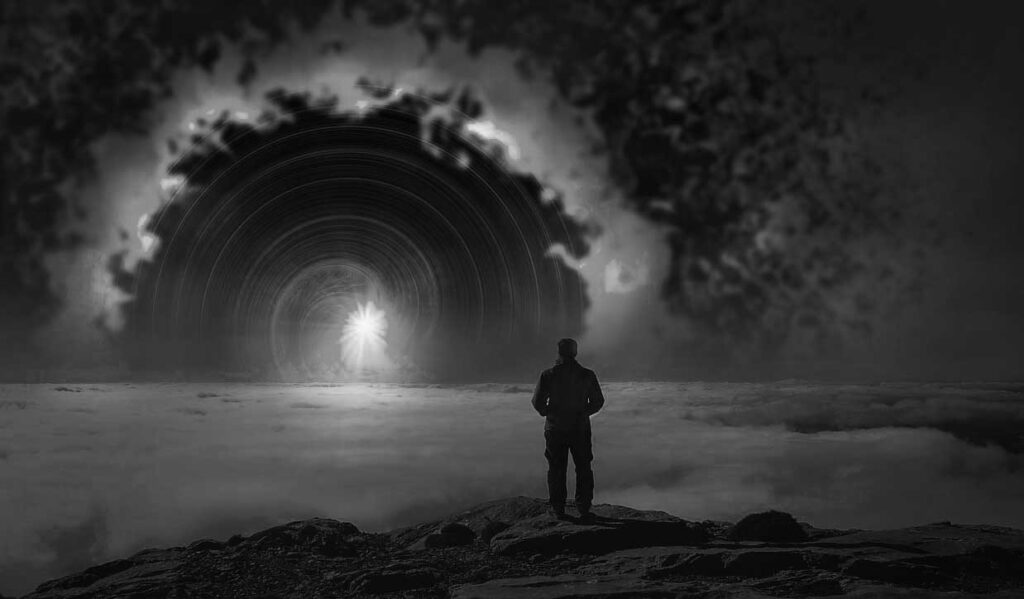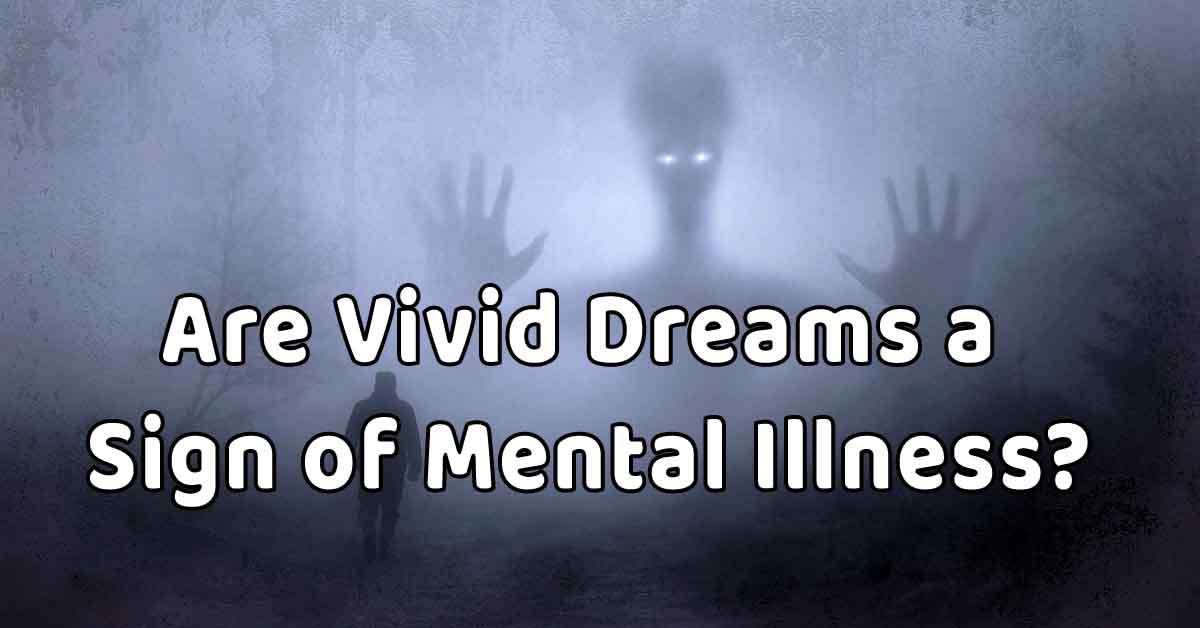Are Vivid Dreams a Sign of Mental Illness
Introduction:
Dreams—those intricate stories and images that unfold in our minds as we sleep—can be a fascinating peek into our subconscious. Often, they are simply reflections of our daily experiences or a blend of our hopes and fears. But when dreams become unusually vivid, striking, and memorable, some people begin to wonder if these intense nocturnal visions are precursors of mental illness. This blog post delves into the complex relationship between vivid dreams and mental health, exploring the latest research, and expert analysis, and providing guidance on when to seek professional help.
Physiology and Psychology
DreamBasics:
Vivid dreams are those that are particularly clear, intense, and easy to remember. They often feature rich narratives and sensory experiences that can feel as real as waking life. These dreams can occur during any sleep stage but are most commonly associated with sleep in REM (rapid eye movement).
REM Sleep and Brain Activity
During REM sleep, the brain is highly active, with waves similar to those during wakefulness. This stage of sleep is when most dreaming occurs, and it’s thought to play a role in processing emotions and memories.
Psychological Theories of Dreaming:
From Freud to Jung Sigmund Freud saw dreams as expressions of repressed desires, while Carl Jung believed they served to reconcile the individual’s conscious and unconscious minds. Both theories highlight the potential significance of dreams in understanding our inner lives.
The Spectrum of Dream Experiences
Normal vs. Vivid Dreams:
Normal dreams may not be remembered or might be hazy, while vivid dreams are often remembered in detail. Vivid dreams can include all senses and may be influenced by real-life events or stressors.
Recurring and Lucid Dreams:
Recurring dreams repeat over time and may indicate unresolved issues. Lucid dreams are where the dreamer is aware they are dreaming and may even control the dream narrative.
When Vivid Dreams Turn Unpleasant
Nightmares are vivid dreams with frightening or unsettling content, often leading to awakening. Night terrors are more intense and can involve physical reactions such as screaming or thrashing.

Mental Health and Dreams: Is There a Connection?
The Brain’s Response to Emotional Strain
Stress and anxiety can trigger vivid dreams as the brain processes emotional experiences. These dreams may be the mind’s attempt to work through stressors.
Depression and Dream Intensity:
Depression has been linked to an increase in dream intensity and frequency, with some sufferers reporting particularly vivid or disturbing dreams.
PTSD and Vivid Dreams:
For those with PTSD, nightmares are a common symptom, often replaying or symbolizing traumatic events. These vivid dreams can be a significant source of distress.
Vivid Dream Reduction Techniques
Improve your sleeping hygiene:
Creating a sleep-friendly atmosphere and establishing a consistent sleep regimen can improve sleep quality and perhaps lessen the likelihood of vivid dreams. Maintaining a regular sleep schedule, establishing a pleasant sleep environment, reducing exposure to stimulating activities before bed, and avoiding chemicals that might disrupt sleep, such as caffeine and alcohol, are all part of this.
Relaxation methods:
Using relaxation methods like deep breathing exercises, progressive muscle relaxation, or guided imagery before bed can help calm the mind and encourage a more comfortable sleep. These approaches can lessen dream intensity and provide a more pleasant sleep experience.
Are Vivid Dreams a Sign of Mental Illness
The Role of Other Factors Influencing Dream Vividness
Medications and Substances:
Certain medications and substances, such as antidepressants or alcohol, can affect the vividness and content of dreams, sometimes leading to more intense dream experiences.
How They Shape Your Dream World
Sleep habits and overall lifestyle, including diet and exercise, can influence dream quality. Poor sleep hygiene may lead to more disrupted and vivid dreams.
Genetics and Personal Differences in Dreaming Patterns
Genetic factors may play a role in how often and how vividly people dream, with some individuals naturally experiencing more intense dreams than others.

Assessing Vivid Dreams: When to Be Concerned
Frequency and Impact:
Assessing Your Dream Patterns If vivid dreams occur frequently and impact your well-being or daily functioning, it may be worth exploring further with a professional.
Dream Content and Emotional Distress:
Understanding the Warning Signs Disturbing dream content that causes emotional distress or reflects ongoing fears and anxieties might be a signal to seek help.
The Importance of Context:
When Vivid Dreams Are Just Dreams Not all vivid dreams are cause for concern. They can be a normal part of a rich dream life, especially if they don’t cause distress or interfere with daily life.
Sleep Hygiene and Lifestyle Changes:
Strategies for Better Rest Improving sleep hygiene through consistent sleep schedules, a comfortable sleep environment, and relaxation techniques can lead to better quality sleep and potentially fewer vivid dreams.
Are Vivid Dreams a Sign of Mental Illness
Certain Mental Disorders Linked to Vivid Dreams
Though vivid dreams can occur in a variety of mental health situations, some diseases have been more strongly linked to vivid dreaming than others. Among them are:
Depression
Depression is frequently accompanied by more frequent bad dream experiences, which mirror the themes of sadness, remorse, and hopelessness associated with depression.
Anxiety Disorders:
There is a correlation between a higher chance of having vivid and emotionally charged dreams and conditions including social anxiety disorder, panic disorder, and generalized anxiety disorder.
Insomnia
Insomnia and sleep apnea are two sleep disorders that can interrupt sleep patterns and contribute to more vivid dream experiences.
Post-traumatic Stress Disorder (PTSD):
As was previously noted, people who have PTSD typically have vivid, upsetting nightmares that are connected to their horrific experiences.

Conclusion:(Are Vivid Dreams a Sign of Mental Illness)
Vivid dreams, in themselves, are not a straight ticket to mental illnesses like anxiety or depression. However, they can be symptomatic of underlying stressors or emotional burdens, especially when they’re disruptive to your well-being. If you’re experiencing persistent or distressing vivid dreams, it’s crucial to examine your mental and physical health more closely. Remember that dreams, like other aspects of our mental landscape, can offer invaluable clues to our inner world. By staying attentive to their messages and seeking advice when necessary, we can ensure that our dreams remain fascinating nighttime journeys rather than sources of concern.
FAQs: Are Vivid Dreams a Sign of Mental Illness?
Q: Are you saying that having bad dreams benefits us?
A: Yes, without a doubt. However, it is believed that in nightmares, this helpful mechanism fails to the point of interrupting the dream and awakening the sleeper, preventing the process of emotional integration from progressing.
Q: Are vivid dreams common?
A: Yes, vivid dreams are a normal and common experience for many people. They are a natural part of the sleep cycle.
Q: Can vivid dreams be a sign of mental illness?
A: Not necessarily. Vivid dreams alone are usually not indicative of mental illness. They can be influenced by various factors such as stress, sleep patterns, and lifestyle.
Q: What causes vivid dreams?
A: Vivid dreams can be caused by a variety of factors, including changes in sleep patterns, medications, substance use, and emotional or psychological stress.
Q: Are there specific mental illnesses associated with vivid dreams?
A: Some mental health conditions, like anxiety and post-traumatic stress disorder (PTSD), may be associated with vivid dreams. However, vivid dreams alone are not diagnostic of any particular mental illness.
Q: Can medications cause vivid dreams?
A: Yes, certain medications, including antidepressants and some sleep aids, may contribute to vivid dreaming as a side effect.
Q: Is there a link between nightmares and mental illness?
A: Nightmares, which are distressing dreams, can be associated with mental health conditions, especially PTSD and anxiety disorders. However, occasional nightmares are generally not cause for concern.
Q: Should I be worried if I frequently experience vivid dreams?
A: Frequent vivid dreams may be a normal variation, but if they are causing distress or impacting your daily life, it may be helpful to consult with a healthcare professional.

Q: Can lifestyle factors influence vivid dreams?
A: Yes, lifestyle factors such as irregular sleep patterns, poor sleep hygiene, and excessive stress can contribute to vivid dreaming.
Q: How can I manage or reduce vivid dreams?
A: Improving sleep hygiene, managing stress, and avoiding certain substances close to bedtime can help reduce the occurrence of vivid dreams.
Q: Can lucid dreaming be a sign of mental illness?
A: No, lucid dreaming, where the dreamer is aware they are dreaming, is not a sign of mental illness. It is a skill that some individuals actively cultivate.
Q: Do children experience vivid dreams differently than adults?
A: Yes, children may experience vivid dreams differently, and their dreams are often influenced by their developmental stage. Consultation with a pediatrician may be beneficial if parents have concerns.
Q: Can a lack of dreams be a sign of mental health issues?
A: Not necessarily. The absence of dreams, or difficulty remembering them, is not typically considered a direct sign of mental health issues.
Q: When should I seek professional help for vivid dreams?
A: If vivid dreams are causing significant distress, impacting your daily life, or are accompanied by other concerning symptoms, it is advisable to consult with a mental health professional for a thorough assessment.
Q: Are there specific mental health disorders that may specifically cause pleasant or positive vivid dreams?
A: Certain mental health conditions, such as bipolar disorder, may be associated with changes in sleep patterns, including vivid dreams. However, the content of dreams can vary widely and is not exclusive to negative experiences.
Q: Can trauma affect the frequency of vivid dreams?
A: Yes, individuals who have experienced trauma, especially those with post-traumatic stress disorder (PTSD), may often experience vivid and distressing dreams related to their traumatic experiences. Seeking support from a mental health professional can be beneficial in managing these symptoms.

